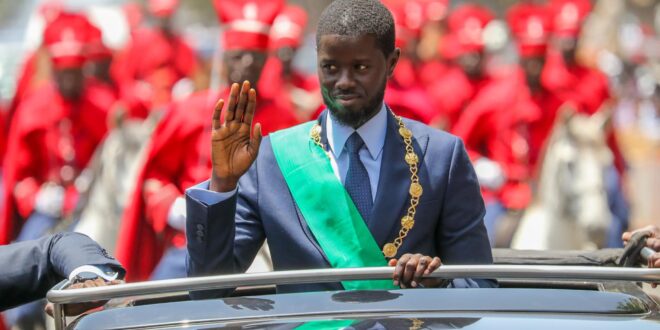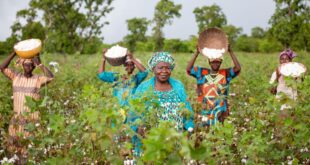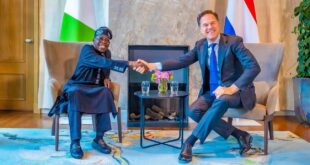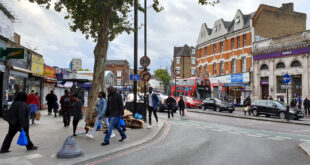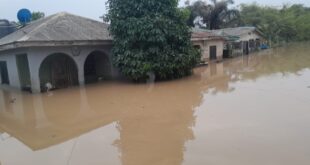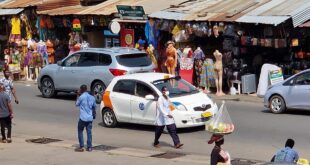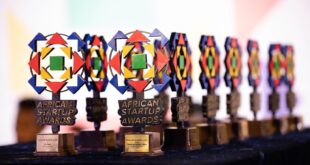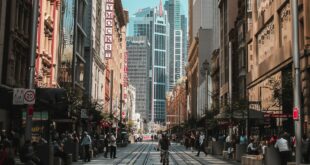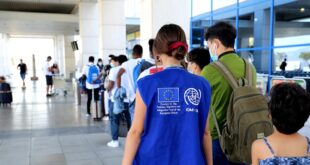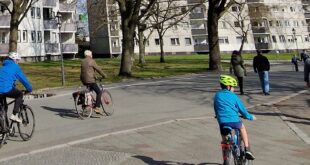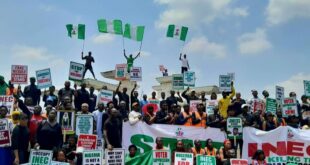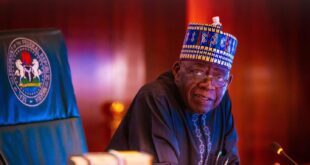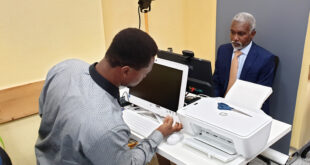An EU observer mission witnessed the recent presidential election in Senegal. Dr Pierrette Herzberger-Fofana, Member of the European Parliament who was a member of the mission, writes on what they witnessed in Senegal and her views on the country’s democracy
____________________
Since last year, Senegal has been in the international spotlight. With the 2024 presidential vote, it reveals to Africa and the world that it is still a leading figure for democracy and respect for freedoms in Africa.
Presidential elections: Election Observation Mission (EU-EOM)
The presidential elections were held on 24 March 2024, in an atmosphere of peace, serenity and confidence in democratic principles. The European Parliament has sent five MEPs from four different political groups and five EU countries. In addition, observers from 27 EU Member States, Canada, Norway and Switzerland were tasked with assessing the electoral process.
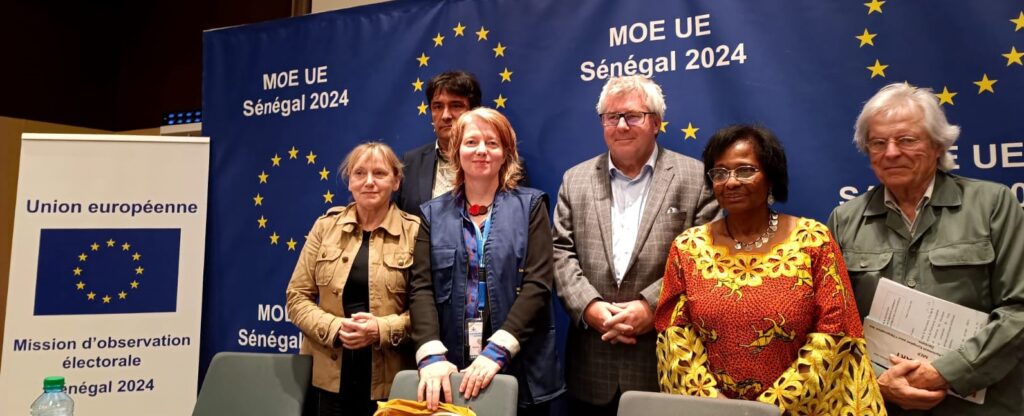
In addition to the European parliamentary delegation, it should be noted that since 13 January 2024, Ms Malin Björk has been Chief Observer of the EU-EOM Senegal 2024. She is from Sweden and a member of the Left in the European Parliament.
Senegal is a country with a long democratic tradition. It is known for his deep commitment to democratic values. Since 1848, Senegalese people have been going to the polls. Senegalese women acquired the right to vote long before France granted it to French women in 1944 and Belgium to Belgian women in 1948. This shows the extent to which democratic values and, above all, trust in institutions are anchored in the mentality of the population. The rejection of any tinkering with the Constitution is a constant in Senegal.
After a few political upheavals, the election finally took place on Sunday, 24 March 2024. Indeed, on 3 February 2024, Macky Sall, the outgoing President of the Republic, had announced the postponement of the elections to 15 December 2024. This led to strong reactions and demonstrations in which people lost their lives.
In addition, President Macky Sall had invited all political parties in Senegal to participate in a national dialogue, but was met with with a categorical no. The postponement caused widespread waves of protests among the population, which over the past two years has borne the brunt of sporadic violence caused by the trial of Ousmane Sonko, the country’s main opposition leader.
The dissolution of Ousmane Sonko’s party, PASTEF-Les Patriotes (African Patriots of Senegal for Work, Ethics and Fraternity) in July 2023 followed by his arrest and that of Diomaye Faye, the newly-elected President, plunged the country into a serious political crisis.
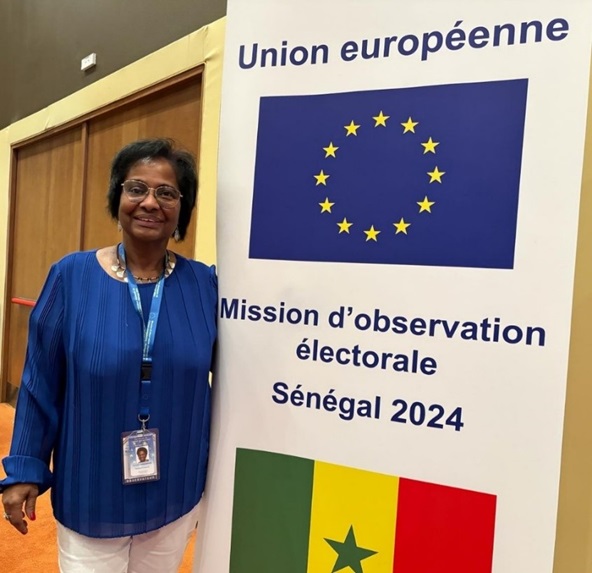
The intervention of the Constitutional Council, which invited President Macky Sall to hold elections “as soon as possible” and the release of the two PASTEF candidates, Ousmane Sonko and Diomaye Faye, contributed greatly to the climate of appeasement that preceded the election.
The people welcomed with relief the amnesty decree that announced the release from prison of Ousmane Sonko, the charismatic opposition leader and his “political twin” Diomaye Faye. Their slogan: “Sonko moy Diomaye Faye / Diomaye Faye moy Sonko (Sonko is Diomaye Faye/ Diomaye Faye is Sonko)” would allow Diomaye Faye to take the reins of the country.
At the invitation of the Senegalese authorities, the European Union had deployed, from 13 January 2024, an Election Observation Mission (EOM-EU). On election day, 100 observers were present in 406 polling stations in 40 of the 46 departments of the country’s 14 regions.
The Ballot
According to the head of the European Union Election Observation Mission, Malin Björk:
“The electoral process was strongly impacted by a major political crisis from which the country emerged from the top thanks to the resilience of the rule of law and an open and well-organised election.”
The EU-EOM is independent in its conclusions and adheres to the Declaration of Principles for International Election Observation, signed at the United Nations in October 2005.
The Voting
The vote took place in an orderly, calm and serene manner. There was no opposition challenge, which is a first in Senegal’s electoral history. The electoral process was well organized. All polling stations received the required number of ballots on time. The CENA (Autonomous National Electoral Commission) was present in all the polling stations as well as the parties’ representatives.
The counting was done in a transparent manner. The presidents of the regional centres respected the opening and closing times of the offices. On the other hand, civil society was poorly represented. There was a noticeable parity among the members of the bureau, but the presidents of the offices and centres were generally men, in contrast to the assessors and secretaries, who were mainly women.

Many voters were unable to vote in the department of Keur Massar due to the 2021 administrative redistribution. In front of polling stations, images were shown to explain to people living with deaf-mute disabilities how to vote.
On the other hand, there were not ramps everywhere to facilitate access to the polling stations for people with reduced mobility. In general, they benefited from the solidarity of their companions or people who spontaneously helped them when they were in a wheelchair. Classrooms used to conduct voting were not always optimally lighted, so most polling station members had to use their own cell phones to read the results.
In conclusion, the election was orderly, efficient and well designed. Considering the period of Ramadan, most citizens cast their ballots during the morning and showed patience despite the long queues. Senegal has thus risen to the great challenge it faced and has given a positive image of the electoral process, which took place in accordance with democratic principles and, above all, in peace.
Senegal in jubilation: an unprecedented victory
As soon as the polls closed at 6 pm, the supporters stormed the headquarters of the PASTEF party and the house of the future President of the Republic. They proclaimed their candidate’s victory and chanted many slogans in Wolof, the language most widely spoken in Senegal. They sang these slogans spontaneously such as “Diomaye, nam na la, Diomaye we love you. Diomaye, we won.”
A concert of pots and pans, horns and Vuvuzela mingled with the dance steps that the young people were sketching in all the districts of Dakar. Joy, relief and a festive atmosphere reigned everywhere on voting day.
The official results had not yet been released, but Amadou Bâ, the designed candidate of President Sall’s party, acknowledged his defeat by Diomaye Faye and congratulated him in these terms:
“In view of the trends in the results of the presidential election and pending the official proclamation, I congratulate President Bassirou Diomaye Diakhar Faye on his victory in the first round. I pray to the Almighty to grant him the energy and strength necessary to assume this high office at the head of our country. I wish him much success and success for the well-being of the Senegalese people.”
Macky Sall, the outgoing President of the Republic, followed suit by declaring:
“I salute the smooth conduct of the presidential election of 24 March 2024 and congratulate the winner, Mr Bassirou Diomaye Faye, whom trends show as the winner. This is the victory of Senegalese democracy.”
Congratulations from all the political class poured in from all sides and took on a celebratory air, even though the official results had not yet been announced. Their proclamation took place on Friday, 29 March 2024. Private televisions and community radio stations echoed this popular jubilation.
The Diaspora Vote
In France, the strongest Diaspora in Europe, voted largely for Diomaye Faye. In Germany, the majority of Senegalese also voted for Diomaye Faye and Amadou Bâ in second place, according to the Senegalese embassy in Berlin. There were no major incidents. The vote was peaceful. The same happened in Italy, Spain, Belgium and England. Senegalese living in the United States and Canada have outdone themselves with their financial assistance. The Senegalese diaspora contributed financially to the electoral campaign. The vast majority of these funds came from the United States, Canada and Europe.
Conclusion
The triumph of PASTEF and, more concretely, that of Bassirou Diomaye Faye in the presidential election in Senegal will change the situation. The challenges facing the new government are numerous. First of all, the question of the employment of young people who have mobilized for a policy of “rupture” and “change” will be the primary issue to be resolved. If this vote sanctions the outgoing president’s record, it will lay bare the difficulties of achieving the expectations of the population
With this election, Senegal has just inscribed in golden letters a dazzling chapter in its history by achieving a democratic change without bloodshed, in peace, transparency and respect for democratic institutions.
The author, Dr Pierrette Herzberger-Fofana, a Member of the European Parliament, MEP, is Vice-President of the Development Committee and Vice-President of the EU-ACP Joint Parliamentary Assembly (European Union – Africa Caribbean-Pacific).
READ ALSO We witnessed victory for democracy in Liberia
 THE AFRICAN COURIER. Reporting Africa and its Diaspora! The African Courier is an international magazine published in Germany to report on Africa and the Diaspora African experience. The first issue of the bimonthly magazine appeared on the newsstands on 15 February 1998. The African Courier is a communication forum for European-African political, economic and cultural exchanges, and a voice for Africa in Europe.
THE AFRICAN COURIER. Reporting Africa and its Diaspora! The African Courier is an international magazine published in Germany to report on Africa and the Diaspora African experience. The first issue of the bimonthly magazine appeared on the newsstands on 15 February 1998. The African Courier is a communication forum for European-African political, economic and cultural exchanges, and a voice for Africa in Europe.

